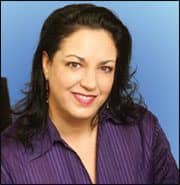Some in HTM are unsure if they should pursue more degrees or certifications. The answer might depend on what kind of person you are.
By Binseng Wang
“Should I acquire more degrees or certifications?”
I have been asked this question more and more often in the last few years. Perhaps I look old, so people think I know the right answer because of the many mistakes I have made. To avoid repeating myself, please allow me to answer this question publicly.
To start, these are my personal opinions and do not reflect those of my current or prior employers and/or affiliated organizations. Second, I admit that I have, indeed, made many mistakes and have not always learned from them as quickly as I should, so some of my opinions may not be suitable for everyone and could even be entirely incorrect. Finally, I beg forgiveness to those who may be offended by what I have to say, and they have the right to disagree with my perspective. Thus, here is my answer:
It depends.
No, I’m not playing lawyer here or trying to confuse people. The reason for saying “it depends” is because it is not possible to provide a single answer that fits everyone. Just like one should not tell everyone to aspire to be a medical doctor, engineer, musician, or actor without understanding their innate skills, aspirations, environmental limitations, and access to education, training, or guidance. So, I will try to provide some very broad guidance.
Two Career Paths
In my opinion, most people can be divided into two major categories for this question. The first category is comprised of those who would like to have smooth career growth while enjoying balanced personal and professional lives. The second is composed of those who are willing to take significant risks to achieve goals typically deemed too high or risky by others. This is not to say that it’s impossible to reconcile personal and professional lives, but often the pursuit of big accomplishments requires major sacrifices, especially from the personal side, including from others closely related to them.
For those in the first category, it makes sense to pursue the traditional education path, acquiring diplomas, certifications, etc., along the way. This is the easiest and surest way to learn, and also the metric most often used by recruiters and supervisors. Some organizations even have rigid classification and promotion rules based primarily on those documents, because they are straightforward for both supervisors and organization leaders to pigeon-hole employees and help avoid contentious arguments about the subjective evaluation of job performance.
If you’re in the second category, however, it may not be worthwhile to attend schools and collect diplomas, certifications, etc. If your goal is to create a new company or industry, invent new technologies, or create new scientific theories, schooling may be too long and boring. Such extraordinary individuals include Steve Jobs, Bill Gates, John Nash, Godfrey Hounsfield, and Albert Einstein, to name a few contemporary prominent examples.
Previously, there were the likes of Galileo Galilei, Issac Newton, Charles Darwin, Michael Faraday, and Georg von Békésy. These great contributors to science, technology, and society had limited or no formal education and were mostly self-taught. Some were even labeled “’slow-learners” or troublemakers by their schoolteachers.
Those aiming for the second category should be ready for major challenges, both emotionally and physically, due to the financial and social difficulties they often face. In fact, some people in this category were never publicly acknowledged for their contributions during their lifetimes. They often had to depend on luck for someone higher up to recognize their brilliance and help them achieve their goals. Success in this group is rare, with only one in tens or hundreds of thousands making it, but their contributions are celebrated for hundreds or even thousands of years. Please read the biographies of some of those mentioned to appreciate their tortuous and difficult lives.
Having said that, some people in the second category should still consider attending schools and collecting diplomas, certifications, etc. This is because there are often cultural barriers in many societies that prevent or delay recognition of talented people. The most common barriers are gender, race, social, and/or immigration status. Prominent examples are Leonardo da Vinci—an illegitimate son, who could not attend formal schooling; Marie Curie—a female immigrant, who only received her first Nobel prize after her husband refused to accept it alone; Katherine Johnson, Dorothy Vaughan, and Mary Jackson, the three African-American mathematicians made famous in “Hidden Figures”; George Boole—the son of a Irish shoemaker who never attended school but invented the Boolean algebra; and Nikola Tesla—a Serbian immigrant who invented the alternating current (AC) system and wireless power transmission, but died bankrupt and without any recognition is his lifetime.
Weighing the Benefits of Certifications
Unfortunately, many organizations have strict diploma requirements for job candidates. A few notable exceptions include Apple, Google, IBM, and Dell. While some organizations may not have a formal degree requirement, it’s almost impossible for any job applicant, especially minorities, to be seriously considered when they don’t have diplomas and certifications. In essence, if you are one of them, you need to obtain credentials that can help you open the employment doors for you. Obviously, once you’re in, you still need to prove your value to advance.
That’s not to say that I don’t appreciate those who prefer to be in the first category. Society cannot function or survive having only generals, architects, and chefs without the lower rank warriors, construction workers and managers, line cooks and servers, etc. Furthermore, they may still face challenges after graduating and entering the job market. Every organization has its own internal culture, politics, and challenges. You must demonstrate your value by contributing to the organization’s goals and mission, as well as managing staff, collaborating with your colleagues and making your customers happy. This often requires soft skills not typically taught in schools.
There are plenty of examples of those who earned several degrees in the traditional way and went on to make extraordinary contributions to the nation and humanity. Some examples include Intel founders Robert Noyce, Gordon Moore, and Andrew Grove; MRI pioneers Paul Lauterbur and Peter Mansfield; pacemaker inventor and Medtronic founder Earl Bakken; and Apollo 11 astronauts Neil Armstrong, Michael Collins, and Buzz Aldrin.
Finally, regardless of which category you’re in, you must continue to learn throughout your professional life. Remember, you may spend 15-25 years in school, but your career is likely to be two to three times longer. If you’ve learned anything in school or on your own, the key takeaway should be how to think and learn independently, because most of the other things learned in school are likely forgotten or become obsolete a few years after you graduate.
To sum it up, consider diplomas and certificates as tools for you to achieve your dreams and not goals by themselves. Collect them only as needed. Also, remember luck favors only the prepared and is not truly random.
Binseng Wang, ScD, CCE, fAIMBE, fACCE, is vice president of program management at Sodexo HTM. Questions and comments can be directed to 24×7 chief editor Keri Forsythe-Stephens at [email protected].





